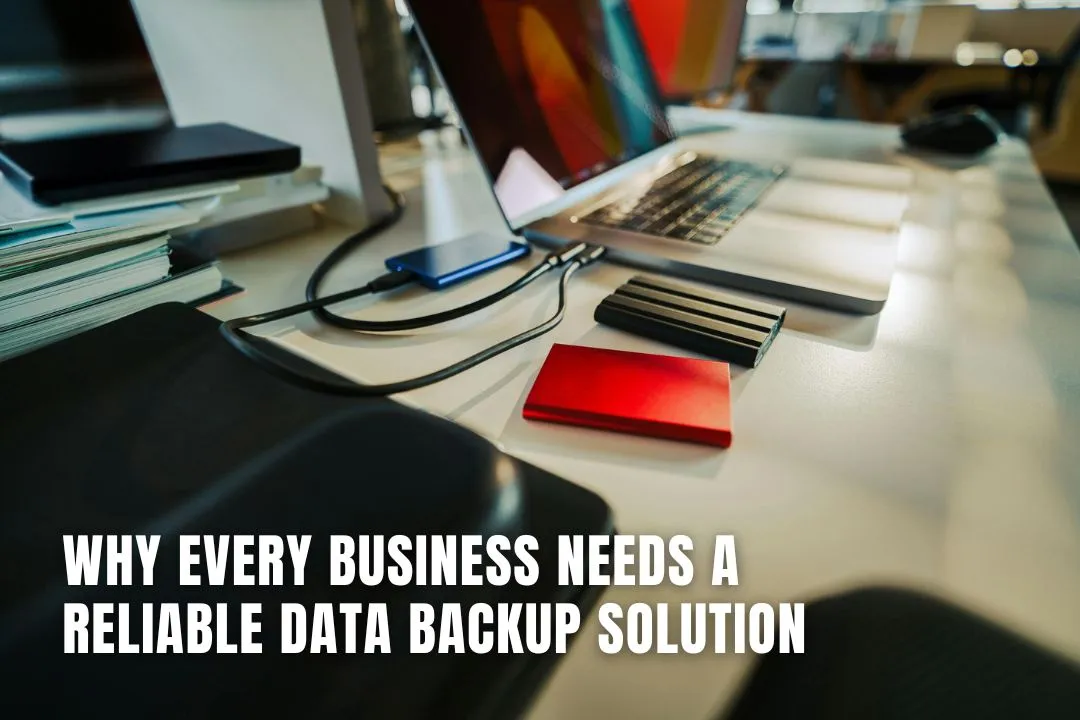
Editorial Disclaimer
This content is published for general information and editorial purposes only. It does not constitute financial, investment, or legal advice, nor should it be relied upon as such. Any mention of companies, platforms, or services does not imply endorsement or recommendation. We are not affiliated with, nor do we accept responsibility for, any third-party entities referenced. Financial markets and company circumstances can change rapidly. Readers should perform their own independent research and seek professional advice before making any financial or investment decisions.
Data is the backbone of modern businesses. Losing critical files—whether from a technical failure, human error, or cyberattack—can bring operations to a halt. Many companies assume disasters won't happen to them, but the reality is that data loss is more common than most think. Without a solid backup plan, recovering lost information can be expensive, time-consuming, and sometimes impossible. The right backup solution isn't just an option; it's a necessity for survival.
Imagine working on an important project for months, only to lose everything because of a sudden server crash. Or picture a ransomware attack locking all your customer records until you pay a hefty fee. These aren't rare scenarios—they happen every day to businesses of all sizes.
Without backups, companies risk:
A single incident can cripple a business that isn't prepared. The question isn't if data loss will happen—it's when.
A reliable backup system does more than just save copies of files. It ensures business continuity, security, and peace of mind. Here's how:
When data is lost, time matters. A proper backup allows businesses to restore files quickly and minimises downtime. For example, if a company's server fails, having backups stored in a separate location means operations can resume within hours instead of days. Some businesses even use incremental backups, which only save changes made since the last backup, which makes recovery even faster.
To streamline this process and avoid manual oversight, many companies choose to hire professional data backup services that manage everything from automated schedules to secure storage solutions.
Cyberattacks like ransomware are designed to lock businesses out of their own data. If hackers encrypt files, backups allow companies to wipe infected systems and restore clean versions without paying a ransom. Regular backups also help detect breaches early, as unusual file changes can be spotted and addressed before major damage occurs.
Many industries have strict rules about data retention. Financial, medical, and legal businesses often need to keep records for years. A backup system ensures they meet these requirements without risking fines or legal trouble. For instance, healthcare providers must follow HIPAA regulations, which mandate secure, retrievable patient records—something only a structured backup system can guarantee.
Employees accidentally delete files all the time. Whether it's an overwritten spreadsheet or a misplaced client folder, backups provide a safety net for simple mistakes. Versioning features, available in many backup solutions, allow businesses to restore previous versions of files, undoing errors before they cause long-term damage.
Not all backup methods are equal. Storing files on a single external drive isn't enough—what if the drive fails or gets stolen? A strong backup strategy follows the 3-2-1 rule:
A reliable backup system follows these principles while adapting to your business's specific needs. Cutting corners with data protection is never worth the risk—invest in a solution that truly safeguards your information.
Cloud storage keeps data safe off-site and allows access from anywhere. Services like Google Drive, Dropbox, or specialised business backup solutions encrypt files and protect them from unauthorised access. Many cloud providers also offer redundancy, meaning data is stored across multiple servers to prevent loss even if one fails.

External hard drives or network-attached storage (NAS) allow quick restores without relying on internet speed. However, they should never be the only backup—physical devices can fail or get damaged. For businesses handling large files, such as video production companies, local backups ensure fast access when needed.
Manual backups are risky because people forget. Automated systems save files at scheduled times to ensure that nothing gets overlooked. Some advanced solutions even back up data in real-time, which captures every change immediately. This is especially useful for businesses with constantly updated records, like e-commerce stores managing inventory.
The best backup plan depends on the business size, budget, and needs.
The cost of a backup system is always less than the cost of losing data. Investing early prevents far greater losses later.
Data loss can strike unexpectedly, and the consequences are often severe. A reliable backup solution isn't just about storing files—it's about ensuring business survival. Whether from cyberattacks, accidents, or technical failures, backups provide a way to recover quickly and keep operations running. Every business, no matter how small, should prioritise a strong backup strategy. The alternative—losing critical data—is a risk no company can afford to take.